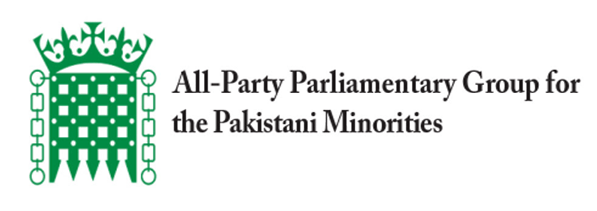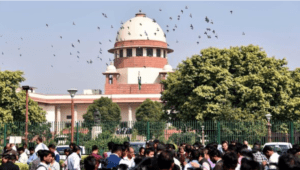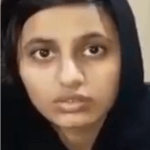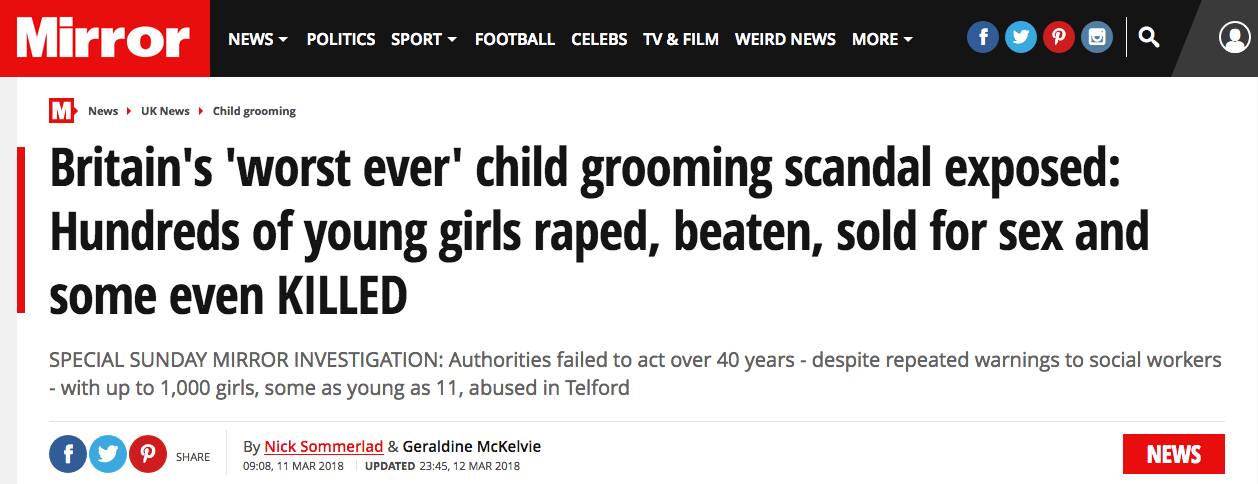
NSO submission to APPG for the Pakistani Minorities inquiry into Abduction, Forced Conversions and Forced Marriages of Religious Minority Girls and Women in Pakistan
The Network of Sikh Organisations (NSO) is a registered charity no.1064544 that links more than 130 UK gurdwaras and other UK Sikh organisations in active cooperation to enhance the image and understanding of Sikhism in the UK.
For the sake of brevity and convenience, we have used headings in the APPG briefing document. We are grateful to former councillor/detective Gurpal Virdi for his input.
Human Rights Organisation/NGOs/Faith and non-faith based groups, Experts
i. Name and organisation? What is the nature of your work on the topic? Do you work with the victims and their families? How many victims or their families do you work with? What assistance do you provide?
Over the last few years, the NSO has followed cases of forced conversion and written about the forced marriage and abuse of religious minority girls and women in Pakistan. This is an issue that has an impact on all non-Muslim minority girls in Pakistan – predominantly Hindu and Christian girls, but it has also impacted the minority Sikh community too. One of the most high-profile cases in recent years has been the case of Jagjit Kaur.[i] She was alleged to be kidnapped at gunpoint from her home in Nankana Sahib (Lahore), converted (given the Muslim name Ayesha) and married to a Muslim boy.[ii]
In many cases the victim’s family face legal challenges, intimidation and according to Professor Javaid Rehman from Brunel University, ‘local authorities, especially police, particularly in the Punjab province, are often accused of being complicit in these cases by failing to properly investigate reported cases or prosecute offenders’.[iii] Legal petitions filed in court from the family members of the accused boy/men, often follow a similar pattern with statements alleging the girl(s) converted and married of their free will. This makes it difficult, if not impossible for the victim families to get access to justice through the courts. Many come from poor backgrounds, and do not have the necessary resources to defend their rights.
According to the academic research on this matter, we understand that approximately 1,000 women and girls from religious minorities are abducted, forcibly converted to Islam, and then married off to their abductors every year in Pakistan.[iv] Our Director Lord Singh of Wimbledon has raised the treatment of minorities in debates in the House of Lords. In a debate on 2nd July 2019 ‘Pakistan: Aid programmes and Human Rights’ – our Director said:
‘Minorities are frequently allocated menial tasks such as the cleaning of public latrines. Homes of minorities are frequently attacked and women and girls kidnapped and converted or sold into slavery. I have at times questioned the appropriateness of Pakistan, with its ill treatment of minorities, still being a member of the Commonwealth, a club of countries with historic ties to Britain. Members are required to abide by the Commonwealth charter, with core values of opposition to, “all forms of discrimination, whether rooted in gender, race, colour, creed, political belief or other grounds”.’[v]
ii. What, in your opinion, are the weaknesses and limitations of the existing laws?
The APPG briefing paper outlines the existing laws including the Child Marriage Restraint Act 1929 of Pakistan, and in Sindh – the Sindh Child Marriage Restraint Act 2014. It says, ‘In another major province, Punjab, the Punjab Marriage Restraint Act 2015 kept the legal age of marriage at 16 years. In 2018, the chairman of the Council of Islamic Ideology announced that a nikah (Islamic marriage) can be performed at any age but the couple can only live together after the age of 18.’ The difficulty here is changes to Pakistan’s law designed to safeguard minors and criminalise those that marry underage boys or girls, although well-meaning conflict with some interpretations of sharia being propagated by influential preachers and Islamic organisations.
Although we submit this isn’t limited to the issue of forced marriage and conversion of minority faith girls only, it has been seen most prominently with the backlash against Pakistan’s Supreme Court decision in the Asia Bibi blasphemy case. Both Bibi and the Supreme Court justices’ received death threats because of the decision to free her.[vi] The courts make important rulings, and some influential clerics push back. The late Khadim Hussain Rizvi, leader of the hardline Tehreek-e-Labbaik Pakistan (TLP) party (whose family was given condolences when he died by Imran Khan),[vii] was a pro-blasphemy law campaigner.
He can be seen in footage giving a speech in which he says keeping relationships with ‘kaffirs’ (a derogatory term), or non-Muslims should be treated like one’s relationship with a toilet.[viii] The dissemination of this kind of doctrinally motivated hatred against non-Muslims by pro-blasphemy clerics in Pakistan serves to incite hatred against non-Muslims and dehumanises them. Whilst laws designed to safeguard against child marriage are indeed a welcome step, do they make a difference in real terms with this backdrop? We believe the problem is compounded because there appears to be little done to address hate speech against non-Muslims. The propagation of this hatred sows the seeds of prejudice, and facilitates the ongoing issue of abduction, forced conversions, and forced marriages of religious minority girls/women in Pakistan.
iii. What, in your opinion, is the problem with implementation of the existing laws that should have protected the victims?
The APPG for the Pakistani minorities 2019 report Religious Minorities of Pakistan: Report of a Parliamentary visit (27 September 2018 – 3 October 2018), cites a report produced by the Commonwealth Initiative for Freedom of Religion or Belief (2018):
‘the police will often either refuse to record an [First information Report] FIR or falsify the information recorded on the FIR, thus denying the families involved the chance to take their case and complaints any further. The lack of an FIR or the misrepresentation of information means that the family are unable to seek further justice in law courts, as an FIR is the vital first stage in the Criminal Procedure Code. Police are also often lethargic in attempting to recover a girl who has been abducted, thus allowing the conversion and marriage to take place. Both the lower courts and the higher courts of Pakistan have displayed bias and a lack of adherence to proper procedures in cases that involve accusations of forced marriage and forced conversions [and in such cases] the judiciary is often subjected to external influences, such as fear of reprisal and violence from extremist elements.’[ix]
We believe this sums up the plight for minorities in Pakistani, in their inability to obtain justice through the legal system. Unless the status quo is changed both in the way the police and judiciary deal with such cases, the ill treatment of minorities will continue unabated. The flaws in the existing system, along with the bias in favour of the accused abductors, is likely to not only further embolden perpetrators, but gives them the reassurance they need that they will be granted impunity for their actions.
iv. How, in your opinion, could the Federal and Provincial Governments improve the laws to eliminate the issue of abductions, forced conversions and forced marriages?
We believe the way to tackle this is two-prong, looking at both shifting societal attitudes, as well as training and education for officials. Firstly, there must be meaningful effort to reduce societal hatred and hostility towards non-Muslims. Second there must be training for officials to highlight their obligations when it comes to the rights of non-Muslim children.
Rather than reinventing the wheel, there have already been some meaningful recommendations put forward for the attention of the Pakistani authorities by this very APPG in their 2019 report. Some examples which would encourage better treatment of minorities in Pakistan:
- ban all discriminatory employment advertisements reserving low-paid or menial
jobs for non-Muslims only and introduce financial penalties for breaching the
ban.[x]
- review all laws that are in conflict with Pakistan’s international human rights
obligations and make recommendations to the Parliament to bring domestic laws
in full conformity with international law.[xi]
- the right to freedom from sexual and physical harassment should constitute part of
the national school curriculum, accompanied by vigorous television and social
media campaigns condemning sexual abuse, forced marriages and forced
conversions.[xii]
More broadly speaking there should be the requirement of mandatory training programmes for the police, social workers, the judiciary on the rights of children and their responsibility to safeguard those rights which are enshrined under Pakistan’s constitution and the law, moreover, the UN Convention on the Rights of the Child and within international human rights law.
vii. What, in your opinion, are the effects of such abductions, forced conversions and forced marriages on a) the victims and b) their families?
Although we have not conducted any direct victim assessments, it is clear the impact of these heinous crimes is severe for the victim and their families. Those who try to fight back through the legal system often face intimidation and threats. The family of Jagjit Kaur were reportedly threatened.[xiii] It is difficult for us to fathom the upheaval and chaos the families and victims go through. Tweeting about the case of Simron Kumari, Veengas a Sindh based journalist and founder of The Rise News, writes, ‘parents have been raising voice for their daughter since 2019. Now, Simron Kumari who was abducted and converted to Islam. Family seeks help but who will listen to their anguish. You cannot do justice to mothers. I request you (sic) that if you have heart then feel their sorrow.’[xiv] In the same thread she writes, ‘Unfortunately, Urdu Elite Media don’t cover Forced conversions issues as they should have covered. Majority of minor girls being abducted & converted to Islam.’[xv] According to another report, a father of two Hindu girls kidnapped in Sindh, protested outside a police station and said, ‘You can kill me. I will never tolerate this. My daughters have been abducted—I had patience.’[xvi]
ix. How can the Home Office be persuaded that the presumption in any such victims case, if applying for asylum in the UK, should be that they have been persecuted for their faith?
Country policy and information notes on Pakistan, which are published by the Home Office should be updated to include information about the persecution of minority faiths in Pakistan on the issue of abduction, forced conversions, and forced marriages. There should be an understanding of the issue at hand amongst Home Office staff, not least immigration officials – so they can make the appropriate assessments for asylum applications.
Network of Sikh Organisations
12 February 2021
[i] http://nsouk.co.uk/the-abduction-and-conversion-of-a-sikh-girl-in-pakistan-is-not-an-isolated-incident/
[ii] https://www.indiatoday.in/world/story/pakistan-sikh-girl-kidnapped-and-married-to-muslim-yet-to-return-home-1603605-2019-09-26
[iii] https://www.spiked-online.com/2019/10/24/pakistans-persecuted-minorities/
[iv] https://www.birmingham.ac.uk/Documents/college-artslaw/ptr/ciforb/Forced-Conversions-and-Forced-Marriages-in-Sindh.pdf
[v] https://hansard.parliament.uk/lords/2019-07-02/debates/B499D3A4-62F1-478B-B6D7-DC97EF160B2B/PakistanAidProgrammesAndHumanRights
[vi] https://edm.parliament.uk/early-day-motion/52298
[vii] https://twitter.com/ImranKhanPTI/status/1329485070344839168
[viii] https://www.youtube.com/watch?v=RcZq-G_E5z0
[ix] https://appgfreedomofreligionorbelief.org/media/190918-Full-Report-Religious-Minorities-of-Pakistan-Report-of-a-Parliamentary-Visit.pdf
[x] Ibid.
[xi] Ibid.
[xii] Ibid.
[xiii] https://www.sikhpa.com/kidnapping-and-forced-conversion-of-sikh-girl-in-pakistan-leads-to-public-outcry/
[xiv] https://twitter.com/VeengasJ/status/1296407534266392576
[xv] https://twitter.com/VeengasJ/status/1296407522270679040
[xvi] https://www.newindianexpress.com/magazine/2019/mar/31/brides-of-despair-1956753.html


 ‘Sikhs should be wary of Hinduism’s capacity to act like ‘the boa constrictor of the Indian forests’ in absorbing other faiths and beliefs.’
‘Sikhs should be wary of Hinduism’s capacity to act like ‘the boa constrictor of the Indian forests’ in absorbing other faiths and beliefs.’


